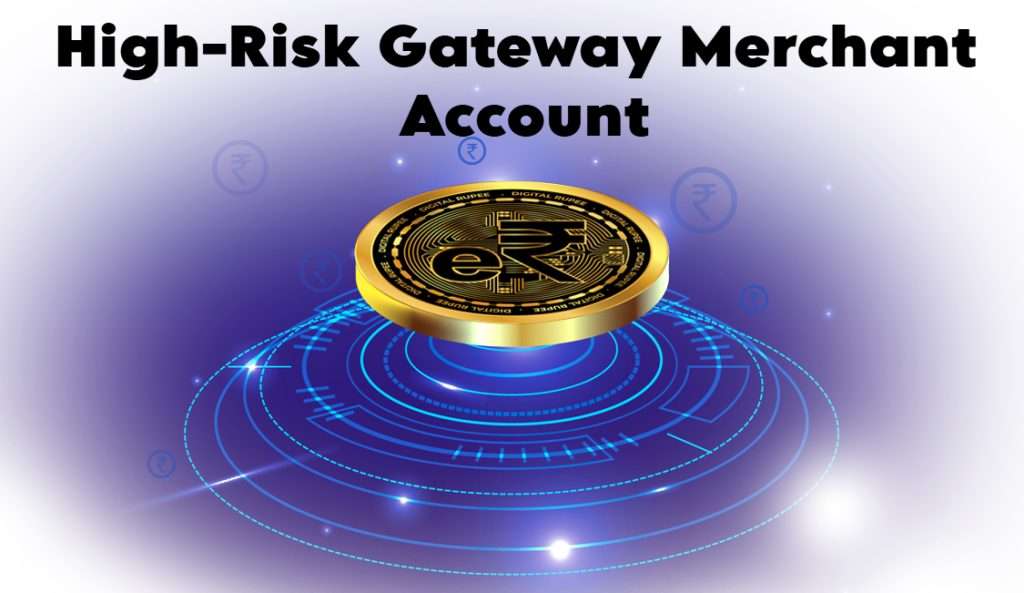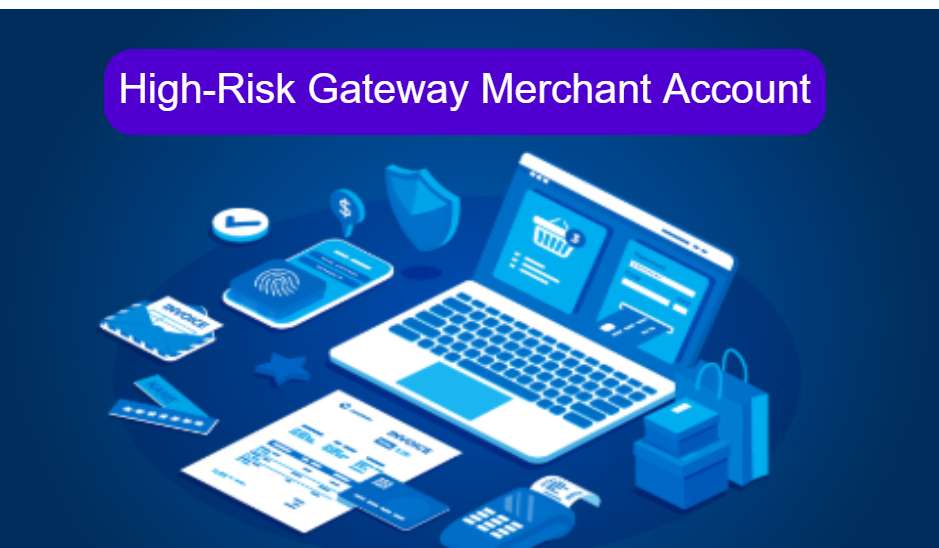AUTHOR : JAYOKI
DATE ; 21/11/23
Introduction

In the evolving world of online payments, payment gateways[1] have become the backbone of e-commerce. As the digital economy expands, merchants are looking for reliable solutions to manage payments securely and efficiently. This is especially true for those in high-risk industries. High-risk gateway merchant accounts are gaining attention for their unique features. These accounts play an important role in certain industries, offering the necessary security and reliability for processing payments. This article delves into the emerging trends in payment gateways and the growing relevance of high-risk gateway merchant accounts[2].
Understanding Payment Gateways
A payment gateway is a technology that securely authorizes and processes credit card payments for e-commerce businesses. It acts as an intermediary between the merchant’s website and the payment processor. This ensures that sensitive financial information is encrypted and transmitted safely. Payment gateways are vital for facilitating online transactions, especially in industries that deal with high transaction volumes[3] or sensitive data.
For most businesses, having a reliable payment gateway is crucial. However, certain sectors face unique challenges when it comes to payment processing. These include industries such as adult services, online gambling, travel, and subscription-based services. These sectors are considered “high-risk” due to their association with chargebacks, fraud, or regulatory scrutiny.
What is a High-Risk Gateway Merchant Account?
This is specifically designed for businesses that fall into high-risk categories. Payment processors typically view these industries as more susceptible to fraud, chargebacks, and disputes. As a result, these businesses often face higher transaction fees, stricter requirements, and limited access to payment processing services.

A high-risk gateway merchant account[4] helps mitigate these challenges by providing tailored services that cater to the needs of high-risk merchants. This includes offering fraud prevention tools, chargeback management solutions, and compliance support. These accounts provide merchants with a reliable way to accept payments online. This helps avoid the constant threat of payment processor rejection.
Key Trends in Payment Gateways
1. Increased Adoption of High-Risk Gateway Merchant Accounts
The rise of the digital economy and the growing prevalence of online businesses has led to an increase in high-risk gateway merchant accounts. As more businesses in high-risk industries are transitioning to digital platforms, the demand for specialized payment solutions has surged. Industries like CBD, cryptocurrency, and adult entertainment are embracing high-risk gateway merchant accounts[5] to ensure seamless payment processing while minimizing chargebacks and fraud.
This trend is expected to continue as more businesses in high-risk sectors explore digital transformation and expand their online presence.
2. Enhanced Security and Fraud Prevention
Security remains a top priority for payment gateways, and high-risk gateway merchant accounts are no exception. With the rise of cyber threats and online fraud, payment processors are increasingly focusing on advanced security protocols such as tokenization, encryption, and multi-factor authentication (MFA).
For high-risk merchants, these enhanced security measures are vital to protect both their business and customers. By adopting cutting-edge fraud detection and prevention technologies, these businesses can minimize chargebacks and fraudulent transactions. In turn, this helps reduce the financial risks associated with operating in high-risk sectors.
3. Integration of Artificial Intelligence and Machine Learning
Artificial intelligence (AI) and machine learning (ML) are transforming the payment gateway industry, particularly for high-risk gateway merchant accounts. These technologies enable payment processors to analyze large amounts of transaction data in real-time. They can identify suspicious patterns and make quick decisions about potential fraud.
For high-risk businesses, AI-powered fraud detection systems are invaluable. They can identify fraudulent activity more accurately and efficiently, reducing the likelihood of chargebacks and improving the overall security of online transactions. The adoption of AI and ML is expected to increase as payment gateway providers continue to innovate and improve their fraud detection capabilities.
4. Mobile Payment Solutions
Mobile payments have become a significant trend in the payment gateway space, and this is particularly true for high-risk gateway merchant accounts. With the proliferation of smartphones and the increasing use of mobile apps for shopping, businesses in high-risk industries are adopting mobile payment solutions to stay competitive.
Mobile payment technologies such as Apple Pay, Google Pay, and Samsung Pay provide consumers with a seamless and secure way to make payments on the go. Additionally, mobile payment platforms often come with advanced fraud protection features, further enhancing security for high-risk merchants.
5. Blockchain and Cryptocurrency Payments
The rise of cryptocurrencies and blockchain technology is another trend that is gaining traction in the payment gateway space. High-risk gateway merchant accounts are particularly well-positioned to benefit from the growing acceptance of cryptocurrencies like Bitcoin and Ethereum.
Cryptocurrency payments offer high-risk businesses an alternative to traditional payment methods. Payment gateway providers are increasingly integrating cryptocurrency payment options into their offerings, allowing high-risk merchants to accept digital currencies alongside traditional payment methods.
6. Regulatory Compliance and Risk Management
Regulatory compliance is an ongoing challenge for businesses in high-risk sectors. Payment processors are continually adapting to changing regulations, particularly those related to anti-money laundering (AML) and know your customer (KYC) requirements. High-risk gateway merchant accounts are equipped with tools and features that help businesses remain compliant with local and international regulations.
In addition to regulatory compliance, risk management is a critical consideration for high-risk merchants. Payment processors offering high-risk gateway merchant accounts provide features such as chargeback protection, escrow services, and real-time transaction monitoring to help businesses mitigate the risks associated with fraud and disputes.
7. Personalized Customer Experience
A key trend in payment gateways is the emphasis on providing a personalized customer experience. High-risk businesses are increasingly investing in payment gateway solutions that allow them to tailor the payment process to their specific needs. This includes offering multiple payment methods, customizing checkout pages, and providing customer support.
For this, personalized experiences can help foster customer loyalty and trust, which is especially important in industries prone to chargebacks and fraud. By offering a seamless and secure payment experience, businesses can improve customer satisfaction and reduce the likelihood of payment disputes.
Benefits of High-Risk Gateway Merchant Accounts

- Fraud Prevention: High-risk gateway merchant accounts come with advanced fraud detection and prevention tools that help mitigate the risk of chargebacks and fraudulent transactions.
- Increased Approval Rates: Unlike traditional merchant accounts, high-risk gateway accounts are designed to cater to the unique needs of high-risk businesses, increasing the likelihood of approval.
- Regulatory Compliance: High-risk gateway merchant accounts help businesses comply with industry regulations, such as KYC and AML, ensuring smooth and secure payment processing.
- Chargeback Management: High-risk merchants often face chargeback issues, but these specialized accounts come with chargeback management tools that can help businesses handle disputes and minimize losses.
Conclusion
As online payment processing continues to evolve, high-risk gateway merchant accounts are becoming an essential tool for businesses in high-risk industries. With advanced security features, fraud prevention measures, and specialized support, these accounts enable businesses to operate smoothly and securely in a digital-first world.
FAQs
1. What industries benefit from a high-risk gateway merchant account?
Industries such as adult entertainment, online gambling, CBD, pharmaceuticals, and subscription-based services typically require high-risk gateway merchant accounts due to the higher likelihood of fraud, chargebacks, and regulatory scrutiny.
2. What are the benefits of using a high-risk gateway merchant account?
The primary benefits include increased approval rates, advanced fraud prevention, better chargeback management, and enhanced compliance with industry regulations.
3. Can I accept cryptocurrency payments with a high-risk gateway merchant account?
Yes, many high-risk gateway merchant accounts now offer the ability to accept cryptocurrency payments, providing businesses with an additional payment method that is secure and less prone to fraud.
4. How can I reduce the risk of chargebacks with a high-risk gateway merchant account?
By utilizing chargeback management tools, implementing advanced fraud detection technologies, and maintaining clear communication with customers, businesses can significantly reduce the risk of chargebacks.
5. What security features are available with high-risk gateway merchant accounts?
High-risk gateway merchant accounts come with enhanced security features such as encryption, tokenization, multi-factor authentication, and real-time transaction monitoring to protect businesses from fraud and data breaches.





